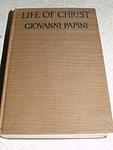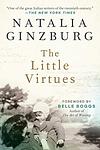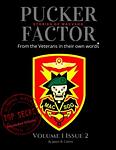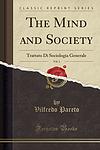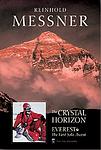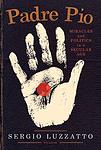The Greatest Italian "Nonfiction" Books Since 1900
Click to learn how this list is calculated.
This list represents a comprehensive and trusted collection of the greatest books. Developed through a specialized algorithm, it brings together 284 'best of' book lists to form a definitive guide to the world's most acclaimed books. For those interested in how these books are chosen, additional details can be found on the rankings page.
Genres
Countries
Date Range
Reading Statistics
Click the button below to see how many of these books you've read!
Download
If you're interested in downloading this list as a CSV file for use in a spreadsheet application, you can easily do so by clicking the button below. Please note that to ensure a manageable file size and faster download, the CSV will include details for only the first 500 books.
Download-
1. If This Is a Man by Primo Levi
This book is a deeply moving and insightful memoir of a survivor of Auschwitz, a Nazi concentration camp during World War II. The author, an Italian Jew, provides a detailed account of his life in the camp, the brutal conditions, the dehumanization, and the struggle for survival. The narrative is a profound exploration of the human spirit, resilience, and the will to live, despite unimaginable horror and suffering. It also raises profound questions about humanity, morality, and the capacity for evil.
-
2. The Periodic Table by Primo Levi
"The Periodic Table" is a collection of short stories that use elements of the periodic table as metaphors to explore the author's experiences as a Jewish-Italian chemist before, during, and after World War II. Each chapter is named after a chemical element, reflecting its significant role in the story. The work provides deep insights into the human condition and the power of science, while also serving as a poignant memoir of survival during the Holocaust.
-
3. Danube by Claudio Magris
This literary work is a rich tapestry that combines travelogue, history, and cultural analysis, following the journey of the river Danube from its sources in the heart of Europe to its delta at the Black Sea. As the narrative meanders through various countries, it delves into the complex history and diversity of the regions along the riverbanks, reflecting on the interplay of different cultures, languages, and peoples. The book is a contemplative exploration of the European spirit, examining the river as both a physical and metaphorical conduit through which ideas and influences have flowed, shaping the continent's past and present.
-
4. Christ Stopped at Eboli: The Story of a Year by Carlo Levi
The book is a memoir about the author's year of exile in a remote region of southern Italy during the fascist regime. It depicts the harsh living conditions, poverty, and backwardness of the area, where the peasants' lives are ruled by superstition and tradition. Despite the difficulties, the author finds beauty and dignity in the people and their way of life, and he paints a vivid picture of their culture, beliefs, and struggles. The title refers to the locals' belief that they have been forgotten by modernity and even by God.
-
5. The Drowned and the Saved by Primo Levi
This book is a deeply moving exploration of the Holocaust, written by a survivor. It delves into the horrifying experiences at Auschwitz, examining the psychological impact on the prisoners, the brutal behavior of the guards, and the complex moral dilemmas faced by both. The author also discusses the concept of memory and its unreliability, especially in the context of such traumatic events, and analyzes the ways in which the Holocaust has been represented and remembered in society. The book serves as a profound meditation on the human condition under extreme circumstances.
-
6. The Marriage Of Cadmus And Harmony by Roberto Calasso
"The Marriage of Cadmus and Harmony" is a unique exploration of Greek mythology. The narrative follows the journey of Cadmus, a Phoenician prince, and his marriage to Harmony, a goddess. The book delves deep into the complex and rich tapestry of Greek myths, presenting them as a continuous and ever-evolving story. It offers fascinating insights into the gods, heroes, and monsters of ancient Greece, while also drawing connections to modern life and thought.
-
7. Life of Christ by Giovanni Papini
"Life of Christ" is a comprehensive biography of Jesus Christ, exploring his life, teachings, and impact on humanity. The book delves into the historical, cultural, and spiritual context of his era, providing in-depth analysis of his miracles, parables, and relationships with his disciples and followers. The author also examines the significance of Christ's crucifixion and resurrection, aiming to provide a thorough understanding of his life and mission.
-
8. Prison Notebooks by Antonio Gramsci
The book in question is a collection of intellectual and critical writings composed by an influential Marxist thinker while incarcerated by a Fascist regime. These notebooks delve into a wide array of subjects, including political theory, sociology, critical theory, and cultural analysis. Central to the work is the concept of cultural hegemony, which explores how state power and societal norms are maintained not just through force but also through cultural institutions and practices that shape public consciousness. The author's reflections on power, class, and ideology have had a profound impact on contemporary political and social thought, offering a nuanced understanding of the superstructures that govern societal dynamics and the potential for transformative change.
-
9. The Little Virtues by Natalia Ginzburg
"The Little Virtues" is a collection of essays that delve into the fabric of everyday life, exploring themes such as the intricacies of family relationships, the importance of personal growth and integrity, and the role of education and parenting. The author reflects on her own experiences, including her upbringing in Italy, the impact of World War II on her life, and her observations on the cultural and societal norms of her time. With a blend of personal anecdote and philosophical insight, the essays advocate for the pursuit of larger virtues—such as generosity, honesty, and courage—over the 'little virtues' like frugality and caution, suggesting that a life well-lived is one that embraces the full spectrum of human potential and kindness.
-
10. The Montessori Method by Maria Montessori
The book provides an in-depth exploration of the educational method developed by the author for teaching children. It emphasizes the importance of self-directed activity, hands-on learning, and collaborative play in child development. The book also discusses the author's philosophy of observing children in a "prepared environment" where they have access to materials and experiences to aid their learning. The method encourages children to make creative choices in their learning, while the teacher guides the process. The book also delves into the author's belief in the critical importance of the early years of a child's life in shaping their future development.
-
11. The Future Of Democracy by Norberto Bobbio
In "The Future of Democracy," the author provides a critical examination of the concept and practice of democracy, exploring its historical evolution, inherent challenges, and potential future. The work delves into the tension between the ideals of democracy and the practical realities of governing, addressing issues such as the role of political parties, the influence of public opinion, and the impact of economic inequalities. The author argues for the necessity of continuous democratic reform and the importance of safeguarding democratic principles in the face of changing social and political landscapes, ultimately presenting a thoughtful reflection on the prospects and resilience of democratic systems in the modern world.
-
12. Survival In Auschwitz by Primo Levi
This book is a harrowing, first-person account of a man's year-long ordeal in Auschwitz, the infamous Nazi concentration camp. The narrative details the brutal conditions, the dehumanizing treatment, and the constant struggle for survival. Despite the horrors he faces, the author emphasizes the importance of maintaining one's humanity and dignity, even in the face of unimaginable cruelty. The book serves as a poignant reminder of the depths of human depravity, as well as the resilience of the human spirit.
-
13. Il Mestiere Di Vivere by Cesare Pavese
The book is a deeply personal diary that chronicles the inner life of its author, a prominent Italian writer, over a period of more than a decade. It offers a raw and intimate glimpse into his thoughts, daily experiences, and struggles with existential questions, relationships, and his own creative process. The diary entries reflect on themes of solitude, despair, and the search for meaning, as well as the author's observations on literature, politics, and the human condition. The work is renowned for its literary introspection and the poignant exploration of the challenges inherent in the "craft of living."
-
14. Stories And Recollections by Umberto Saba
"Stories and Recollections" is a collection of autobiographical prose by an Italian writer, offering a window into the author's life and times. The book weaves together a series of personal anecdotes, reflections, and narratives that span the author's childhood, adolescence, and adulthood. Through these stories, the reader gains insight into the writer's Jewish heritage, his experiences in Trieste, and the broader cultural and historical context of early 20th-century Europe. The work is characterized by its intimate tone and the author's candid exploration of identity, family, and the complexities of human relationships.
-
15. The Mind and Society by Vilfredo Pareto
This book is a comprehensive analysis of the social and psychological processes that shape human behavior and society. The author introduces the concept of "residues" and "derivations" as the main drivers of human actions and societal change. He argues that residues, innate characteristics within individuals, are more stable and influential in shaping social phenomena, while derivations are the justifications or explanations people give for their actions. The book further delves into the classification of residues and the role they play in economics, politics, and social dynamics.
-
16. Seven Brief Lessons on Physics by Carlo Rovelli
This book is a succinct and enlightening introduction to the fundamental concepts of modern physics, presented in seven easy-to-understand lessons. The lessons cover topics such as general relativity, quantum mechanics, the architecture of the cosmos, particles, quantum gravity, probability, time, and the human perspective on these scientific wonders. The book aims to bridge the gap between the complex world of modern physics and the general public's understanding, making the often intimidating subject accessible and engaging for all readers.
-
17. Journey To The Land Of Flies And Other Travels by Aldo Buzzi
This book is a collection of travel essays that take readers on a whimsical and insightful journey through various parts of the world. The author, with a keen eye for detail and a taste for the eccentric, shares his experiences and observations from his travels, ranging from the titular land of flies to the bustling streets of New York and the serene landscapes of Europe. His writing is infused with a mix of humor, reflection, and a deep appreciation for the cultures and cuisines he encounters, making this work a delightful read for those who enjoy literary travelogues and the exploration of foreign places through the eyes of a perceptive and thoughtful wanderer.
-
18. No Picnic on Mount Kenya by Felice Benuzzi
This book is a true story about three Italian prisoners of war in British East Africa during World War II who escape from their POW camp to climb Mount Kenya, Africa's second highest mountain. The narrative is not only about their audacious adventure, but also about the power of the human spirit, camaraderie, and the freedom of the wild. After their climb, they voluntarily return to their POW camp, where they are punished but also celebrated for their incredible feat.
-
19. The Crystal Horizon by Reinhold Messner
"The Crystal Horizon" is a gripping account of the author's solo climb of Mount Everest without the aid of supplemental oxygen, a feat never accomplished before. The book not only details the physical and mental challenges faced during the climb but also delves into the philosophical and spiritual journey the author undergoes. The narrative is interspersed with reflections on the history and culture of the Himalayas, the nature of mountaineering, and the author's personal beliefs and motivations.
-
20. The Mountains of My Life by Walter Bonatti
"The Mountains of My Life" is a collection of memoirs by a renowned mountaineer, recounting his numerous adventures and expeditions to some of the world's highest and most challenging peaks. The book includes detailed accounts of his climbs, including the first winter solo ascent of the Matterhorn's north face and the first solo winter ascent of the Grandes Jorasses' north face. The narrative also delves into controversial events, such as the author's disputed role in the first ascent of K2. The book is a thrilling blend of mountaineering history, personal reflection, and breathtaking descriptions of nature's grandeur.
-
21. Padre Pio by Sergio Luzzatto
The book explores the life and influence of Padre Pio, a Capuchin friar known for his piety, stigmata, and miraculous abilities, which drew both devotion and skepticism. Through rigorous historical research, the author delves into the controversies and fervor surrounding Pio, examining his role within the Catholic Church and his impact on the faithful. The biography critically assesses both the saintly and human aspects of Pio's life, presenting a complex portrait of a figure revered by many and questioned by some, set against the backdrop of 20th-century Italian religious and social history.
Reading Statistics
Click the button below to see how many of these books you've read!
Download
If you're interested in downloading this list as a CSV file for use in a spreadsheet application, you can easily do so by clicking the button below. Please note that to ensure a manageable file size and faster download, the CSV will include details for only the first 500 books.
Download





